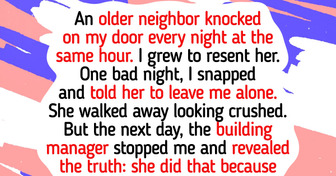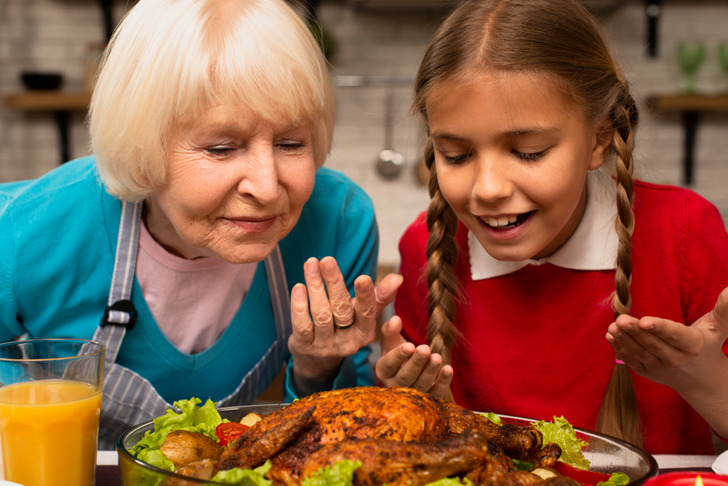The twins are half siblings of your granddaughter. They ARE her family. Amy is the person YOUR son chose as his wife and mother to his children. These kids are SEVEN YEARS OLD, they are little kids, they did not choose their parents, their living situation or even YOU. You are the epitome of the evil step (grand)mother. I hope your son has his wife and children's back and cuts off all communication with you unless/until you develop a soul. You are a horrible person. I would never allow you near any of my children again. You really need to remember that Amy is your granddaughter's mother and is the mother to your granddaughter's half siblings. Thinking about what you've done make my skin crawl, how do you live with yourself? How can you treat innocent children like that?
I Excluded My DIL’s Kids From My Anniversary Celebration, They’re Strangers to Me
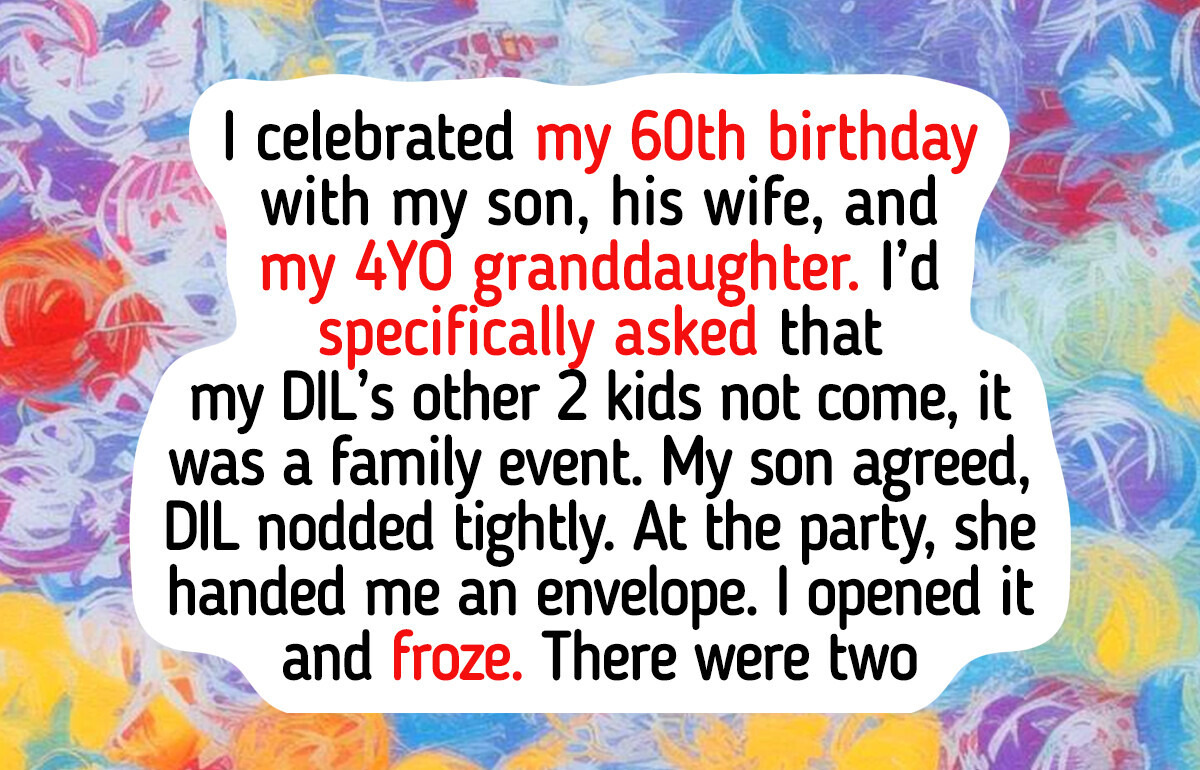
We recently received an email from one of our readers, Barbara N., a 60-year-old woman who finds herself at a painful crossroads. Barbara believes she’s being emotionally manipulated by her daughter-in-law—pressured to love and accept step-grandchildren as if they were her own flesh and blood. But, as she puts it, love doesn’t come on command.
In her letter, Barbara shares how she chose to exclude her daughter-in-law’s children from her milestone birthday celebration—a decision she felt was rooted in tradition and personal boundaries. What followed, however, has snowballed into what now feels like a full-blown family scandal, one with the potential to hurt everyone involved.

Here’s a story Barbara shared in her email:
"Hi Bright Side,
I’m Barbara, 60F. I recently celebrated my 60th birthday with a small family gathering. Nothing big—just close family, good food, a few laughs.
For context, I have one son, 32M, married to Amy (30sF). They have a daughter together, my sweet 4-year-old granddaughter Emma. Amy also has twins from a previous relationship, both are 7. Nice enough kids, but not my grandkids.
So when planning my birthday, I invited my son, Amy, and Emma. I specifically asked that Amy’s other two kids not attend, since this was just a family circle event. I explained it as politely as I could and suggested maybe they could visit their own grandmother that day. My son agreed, and Amy just nodded with clenched teeth but didn’t argue.
The day of the party comes. Everything’s lovely. Then, during the gift-giving part, Amy hands me an envelope. I assumed it was a card or maybe some money. But when I opened it, I found several crayon drawings... obviously made by her twins.
The drawings showed a family scene—Amy’s two kids, their parents, their other grandma, and then one figure completely scribbled over in black. Underneath the blacked-out figure? My name. And at the bottom: “Happy Birthday.”
Everyone went quiet. The whole mood shifted. I was stunned, embarrassed, and honestly? A little hurt. It felt like an absolute guilt-trip.
Later that night, I decided I needed space. I told my son that I won’t be communicating with Amy for a while. I feel manipulated. Those drawings didn’t come from children—maybe the crayons did, but the message? That was Amy’s.
Kids don’t think like that on their own. That was a passive-aggressive stunt to shame me for not treating her kids like my biological grandchild. And I’m sorry, but I’m not their grandmother. I didn’t choose to be in their lives. Amy had them with another man, and that’s her story—not mine.
I don’t think it’s fair to expect everyone to automatically play family to kids just because their dad isn’t around. I never mistreated them, but I don’t owe them grandmotherly affection either. That title comes with a bond, not a marriage certificate.
Now my son judges me. Amy hasn’t said anything, but I know this isn’t over. Was I wrong for drawing a line and excluding her kids from my celebration? Did I go too far, cutting off communication with her after the drawing stunt? I really want to hear what others would do in my shoes."
Thank you, Barbara, for sharing your story with the Bright Side team. This is clearly a deeply emotional and complex situation, where personal boundaries, blended family dynamics, and unspoken expectations are all colliding. The problem is not just about your birthday celebration, it’s about identity of family members, belonging, and the unspoken rules of love and inclusion.
We’ve gathered some advice that we hope will help you navigate this incredibly tough conflict and—if not find total harmony—at least find some peace with yourself and your family.
1. Acknowledge the Emotional Reality of Blended Families.
Psychologists emphasize that blended families require intentional emotional labor from all sides. While you’re not obligated to love Amy’s kids like your own granddaughter, recognizing their presence as part of your son’s family helps build a bridge instead of a wall. Children, especially at that age, interpret exclusion in very black-and-white terms—often internalizing it as personal rejection. Even a small act of inclusion can do wonders for their emotional sense of stability and family belonging.
2. Understand the Power of Symbolic Gestures.
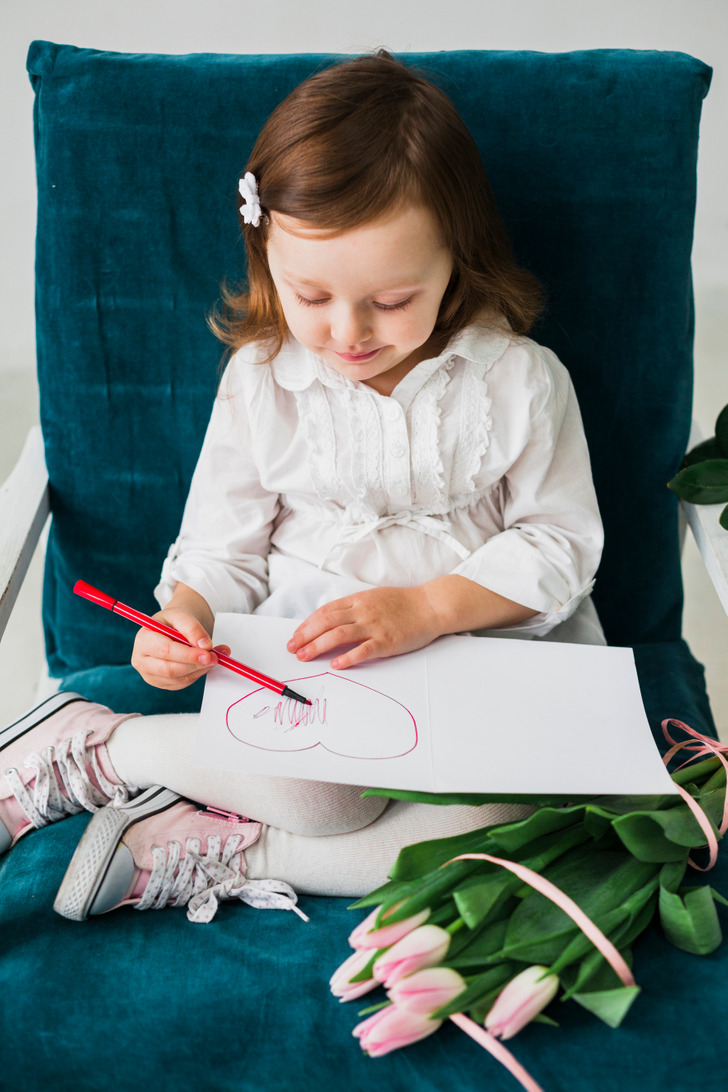
Wow what a jerk im 63 have 8 grands and 4 great grands if my Kids or grands had step children they would be loved an excepted as my bio ones are you'll never be a teal grandma because grandma s love and except all kids get a heart
According to specialists, children often express their emotions through drawings and stories because they lack the vocabulary for deeper feelings. That blacked-out figure in the drawing may have been Amy’s doing—or it may have genuinely come from her children’s confusion and hurt. Either way, interpreting it solely as manipulation may be missing a cry for understanding. Instead of cutting communication, consider opening a channel to ask Amy why she gave you those drawings—there may be more emotion behind them than strategy.
3. Set Boundaries, but Leave Room for Grace.
Boundaries are healthy—but so is compassion. It’s okay to maintain your definition of “family,” but if that boundary becomes a brick wall, it may harm your relationship with your son and even your granddaughter. Consider softening the line—not erasing it, just adjusting it enough to allow connection without obligation. A shared meal, a neutral activity, or even an honest conversation can reframe the dynamic.
4. Don’t Underestimate the Long-Term Impact on Your Son.
That these seemingly small family rifts can quietly snowball into years of emotional distance. Your son is likely caught between loyalty to you and the woman he built a life with—and that emotional tug-of-war can wear people down. Showing even a small gesture of goodwill toward Amy’s kids might feel symbolic, but to your son, it could speak volumes. Sometimes, peace isn’t about giving in—it’s about choosing the relationship over being right.
And here’s one more letter from Nina, 70, who worked hard throughout her entire life and has earned each cent of her savings with her sweat and dedication. Later in life, to her shock, she found out that her family believed she didn’t deserve love and care, only her money did.
Shattered by this heartbreaking discovery, the lady decided to choose herself, and never looked back. Here’s her emotional and dramatic story.
Comments
You excluded 7 year old children that your son is no doubt trying to be 'dad' to! What an AH move! If you did that to me, you'd never see me, my wife or your 'natural' grandchild again! I'd cut you off completely!
Your son and Amy have dodged a big bullet if they decide to exclude you from their lives. You are cruel and heartless to pick favorites over something as mundane as a birthday party FOR A 60yo WOMAN. The kids are 7 and likely see Emma as their sister and your son as a father figure. Obviously, they saw you as a mean, nasty old crow! I hope their little family has much peace and happiness as the bitterness you choose to sow.
Related Reads
I Refused a Job Promotion, Now HR Stepped In
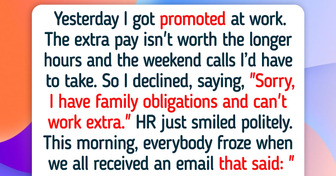
10 Times Office Drama Got Totally Out of Hand
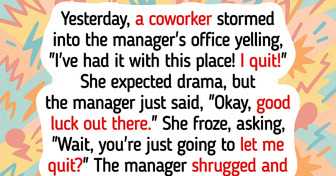
10 Powerful Stories That Show Kindness Always Finds Its Way Back
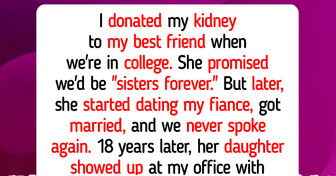
15 Success Moments From Strangers That Deserve All the Golden Buzzers in the World
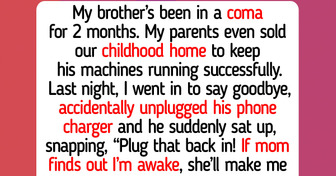
15 Moments That Prove Quiet Kindness Doesn’t Break, Even When We Do
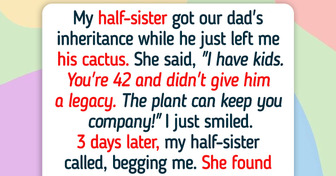
15 Moments That Show Kindness Is Quiet but Changes Everything

I Refuse to Be the Villain When My Boss Is the Real Time Thief

I Refused to Train My New Colleague for Free, I’m Not a Charity
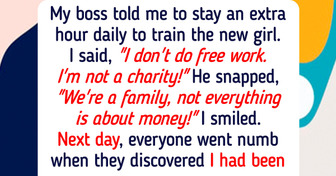
I Refuse to Be My Brother’s ATM Anymore—The Revenge He Planned Was Sick
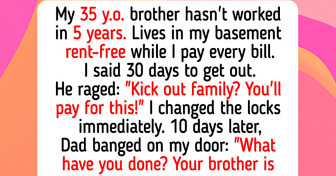
My Family Always Prioritized My Sister—Then Expected Me to Help Them With Medical Bills
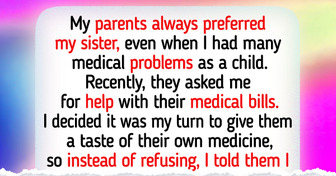
I Refuse to Help My Pregnant Sister, and I Don’t Feel Guilty

12 Stories That Prove Real Kindness Is About Actions, Not Words
